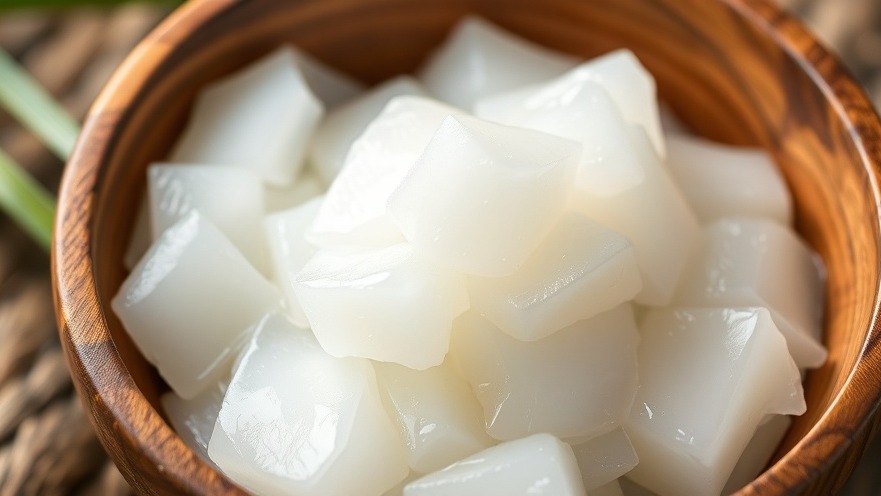
Why Gym Owners Should Embrace Coconut Oil in Cooking
As gym owners and fitness trainers, it’s vital to stay ahead of trends that can enhance both personal and client health. One such trend that has gained momentum is cooking with coconut oil. Unlike traditional oils, coconut oil boasts unique properties that not only elevate the taste of meals but can also contribute to a healthier lifestyle. With its versatility and impressive health benefits, incorporating coconut oil into your kitchen is a savvy addition to any fitness-focused menu.
The Composition of Coconut Oil: What Makes It Unique?
Coconut oil is predominantly composed of saturated fats, primarily lauric acid—a fatty acid that can enhance good cholesterol levels while lowering bad cholesterol. This characteristic sets coconut oil apart from other cooking oils, making it particularly effective when subjected to high heat during cooking. This durability ensures that nutrients within the food are preserved, which is crucial when promoting healthy meals.
The High Smoke Point: A Chef’s Best Friend
One of the standout features of coconut oil is its high smoke point, ranging between 300°F and 400°F. This allows for various cooking techniques, from sautéing vegetables for a hearty stir-fry to frying proteins. By utilizing coconut oil, trainers can prepare nutrient-rich meals that resonate with health-conscious clientele without the risk of burning the oil and creating harmful compounds.
Health Benefits That Matter: Coconut Oil’s Impact on Fitness
Coconut oil contains medium-chain triglycerides (MCTs), which are digested differently from the long-chain triglycerides found in many other fats. This unique digestion process means that MCTs are metabolized quickly, providing an instant energy source—ideal for athletes before workouts. Furthermore, studies have shown that adding coconut oil to your diet can encourage weight loss, particularly by reducing belly fat.
Counterarguments and Myths: Navigating the Coconut Oil Debate
Despite the myriad benefits, there remains some controversy surrounding coconut oil due to its high saturated fat content. Critics often label it as potentially harmful, leading to confusion among consumers. However, recent research suggests that the unique fatty acids in coconut oil may not pose the same risks associated with other saturated fats. Therefore, when utilized in moderation, coconut oil can be a beneficial ingredient in a balanced fitness diet.
Practical Tips for Incorporating Coconut Oil at the Gym
For gym owners and trainers looking to integrate coconut oil into their offerings, consider providing samples in post-workout snacks or protein bars. Use it as a replacement for butter in baking healthy treats or in salad dressings for a tropical twist. Ensure that the message promotes the benefits of coconut oil in alignment with overall health and exercise regimens. This educational approach can resonate deeply with your audience and encourage healthier eating habits.
In conclusion, as a gym owner or fitness trainer, recognizing the value of coconut oil can transform the way meals are prepared and consumed in your establishment. By promoting this ingredient not only as a culinary staple but also as a health-enhancing element, you can elevate the health of your clients while staying ahead of nutritional trends. Therefore, consider adding coconut oil to your cooking arsenal; it may just become the favorite oil in your fitness community.
 Add Row
Add Row  Add
Add 




Write A Comment